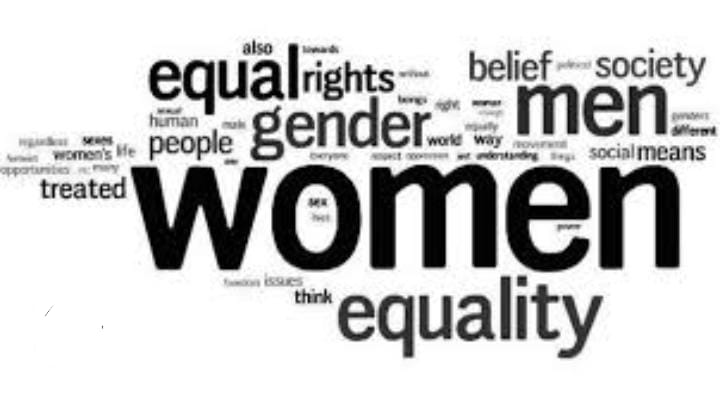The journey of Pakistani women from traditional roles to transformative societal roles is a dynamic
and multifaceted tale. For decades, women in Pakistan have navigated deep-rooted cultural norms
and patriarchal structures while striving for empowerment and social reform. Their progress reflects
the resilience, and evolving identity of Pakistani women as they make significant strides in
education, politics, business, and the arts.
Historical And Modern Day Context
Historically, Pakistani women were often confined to roles within the home, primarily focusing on
family and domestic responsibilities. This traditional view was reinforced by societal norms, rural
lifestyles, and interpretations of cultural practices. Early on, however, figures like Fatima Jinnah
emerged as symbols of strength, influencing women’s involvement in public life. During the 1980s,
the Women’s Action Forum (WAF) led protests against discriminatory laws, pushing for women’s
legal rights and social recognition. According to gender disparities, Pakistan is ranked 145th out of
146 countries in the world. (Source: Gender Report by World Economic Forum)
Education (Catalyst for Change)
Education has played a critical role in the transformation of women’s roles in Pakistan. Programs like
the Girls’ Education Initiative have made strides in increasing female literacy, particularly in rural
areas where girls face barriers like early marriage and limited schooling. Recent data shows that the
gender gap in education is narrowing (44% of females are educated as compared to 56% male),
particularly in urban areas where more women are pursuing higher education and entering
professional fields.
Economic Participation and Empowerment
The economic landscape in Pakistan is changing as more women enter the workforce, marking a shift
from traditional domestic roles to financial independence. Initiatives like the First Women Bank and
microloan programs have empowered women entrepreneurs, particularly in small businesses and
agriculture. Women’s participation in the workforce contributes not only to household income but
also to national economic growth. According to UN, 21% of Pakistani women participate in
workforce, mostly in informal sectors. Women ride Pakistan’s economic crises into the workplace.
However, challenges such as gender-based wage gaps and limited access to certain industries persist.
Political Participation and Legal Reforms
Women’s representation in Pakistani politics has grown, with reserved seats in the National and
Provincial Assemblies providing a platform for women to influence policy. Pakistani women have
made strides in politics, with the late Benazir Bhutto becoming the first female prime minister of a
Muslim-majority country in 1988. Laws against harassment, honor killings, and acid attacks, such as
the Protection Against Harassment of Women at the Workplace Act (2010), are milestones in
legislative reforms. Women in politics, from grassroots leaders to national figures, have been
instrumental in advocating for these changes, illustrating the gradual but significant transformation
in women’s societal roles. (Source:Pakistan Lawyer)
Breaking Stereotypes in Media and the Arts
The arts and media have become arenas for women to express their identities and address social
issues. Pakistani women in film, literature, and journalism are increasingly vocal, challenging gender
stereotypes and creating narratives that highlight women’s strengths and struggles. Through media
representation, women are reshaping perceptions about femininity, resilience, and ambition. Artists
like Sharmeen Obaid Chinoy, whose documentaries spotlight women’s issues, have garnered
international recognition and spurred public conversations on gender equality. (Source: feminism in
Pakistan)
Challenges and the Path Forward
Despite progress, Pakistani women still face challenges. Gender-based violence, particularly in rural
communities, continues to be a pressing issue, as does the under-representation of women in
leadership positions across industries, stereotypes in the media, online threats and harmful norms
continue to undermine gender equality. Only 5.7% of managerial positions are occupied by women
in Pakistan. Persistent cultural attitudes that prioritize men’s authority often limit women’s choices
and autonomy. Addressing these challenges requires continued legal reform, social support, and
education to dismantle deeply ingrained biases. By advancing equality and eliminating all forms of
discrimination against women, we can end the marginalization of women.
Conclusion
The journey of Pakistani women from tradition to transformation highlights both resilience and the
need for ongoing support. As they continue to break down barriers in various sectors, Pakistani
women are shaping a society that increasingly values gender equality. Their journey is a testament
to the power of persistence and a hopeful outlook for a more inclusive future. Through collective
action, educational access, and societal shifts, the role of women in Pakistan is evolving, forging a
path toward a future where they can thrive as equals. This showcases how women in Pakistan are
indeed transforming traditional roles and establishing themselves as central figures in the country’s
progress and identity.
This article was produced by a contributor from IFLRY’s Asia Program

